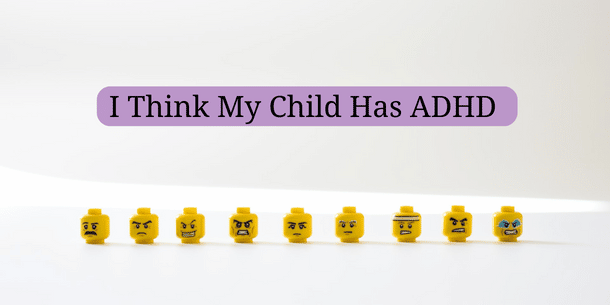I think my child has ADHD – now what? Being a parent and also being a teacher gives certain insights. I have two sons, aged 12 and 10. Early on, I thought something was a bit different with my youngest. I started suspecting he might have ADHD, but how do you cope with this as a mother and teacher?
Background
From when he was 4-5 years old, I started suspecting that he might have ADHD. I recognized some behaviors from students I’ve met over the years. At first, I thought his very active behavior could be that he was young and restless.
Both the kinder garden teachers and I noticed that he sometimes took part in conversations happening in a different room. He didn’t just notice the conversations at the breakfast table. Other signs were not being able to wait for his turn to speak, or change the subject to something that was on his mind right there and then.
Fast forward to when he started preschool and his first year of school. The teachers noticed he was active and sometimes had problems waiting for his turn, but he did well in school. Some of these signs are mentioned in Healthline’s article on signs of ADHD in children as well.
I was worried this might become a problem as he got older, and mentioned to the school that we wanted to look into giving him an evaluation to see if my fears were right.

Present Day – Getting an ADHD Assessment
This week, after three more years, we finally had the first real meeting to make an evaluation. I took him to see a psychiatrist and had a boy who was both anxious and very tired after the different tasks he was asked to do.
As for me, I had to do more paperwork than I already had done as part of the preparation for the meeting. When I and my son’s dad filled out those forms, our son started to cry. He’s felt different from other children before, I think he mentioned it on his own at the age of 6.
This time, as we filled in the form, he started to cry. He said that it felt as though something was very wrong with him. He was really upset about the different questions asked. Trying to fill out a form and trying to calm him at the same time was tough, to say the least.
How do you calm someone, trying to convince them that whatever a piece of paper says or not, that won’t change who he is or how we feel about him? How do you convey that he is loved, no matter what, and that having a diagnosis will change nothing except for the better?

What About the Students with ADHD We Meet in a Classroom?
Over the years, I’ve met plenty of students with ADHD. Their experiences of school and the way they have been treated vary a lot! I remember one girl giving a presentation based on this. One thing she mentioned was that she didn’t want to take any medication for her ADHD. The reason was simple: she didn’t feel like herself while using the medicine. Sure, she could focus better but she also felt emotionally numb from it. Another student told me that all focus that day had been on not hitting the student behind him…
It’s not that individuals with ADHD can’t pay attention to things, but it’s more difficult. This is something mentioned in an article by Helpguide as one myth around ADHD. But the person’s interest in the subject at hand matters a lot! If it’s something that is uninteresting, it’s more likely that the mind starts to wander.
If you know someone with ADHD, their minds can be quick to change the subject! This is something I have experienced, both at home and inside a classroom. Sometimes you get interesting questions, to say the least. But they can be far removed from the topic you work with at the moment.
Not suffering from ADHD myself, it’s sometimes difficult to try and imagine what it’s like living with this. I do know that what works for one person, might not for another. I also know that things can be different from one situation to another, but this goes for non-ADHD people too!

The Future?
I think my child has ADHD – now what? After speaking to both a psychiatrist and getting a physical examination from a doctor, all we can do is wait to see what conclusion these professionals reach. Their feedback came quickly, just a few days after the last appointment. It turns out, as I suspected, that my son filled the criteria for severe ADHD.
I can’t really say that I’m surprised by the results, but it still feels a bit strange to hear it from a professional. I honestly don’t know how this will affect my son or our family, no matter the result. I’m unsure what to think of medication if it comes to that, or how to work with my son’s self-esteem from here on.
My child has ADHD, will this change anything? Some things will probably change, but that depends on the approach we decide on together, as a family.
What I hope is to get some strategies for how to deal with things at home. To learn how best to support both my youngest and his brother. Hopefully, knowing more can help out at home. Perhaps a greater understanding can help lessen some of the many conflicts that we do have on a more or less daily basis.
